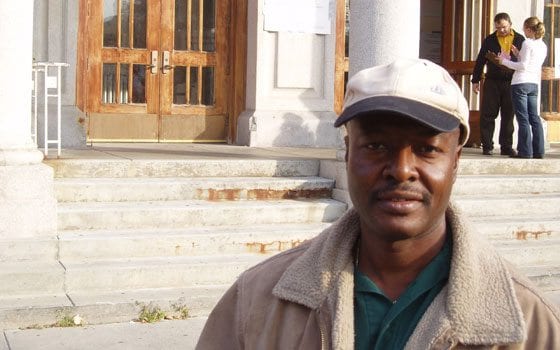
In an election season full of turmoil, marijuana proved to be a central — and hotly debated — issue among Massachusetts voters. On Tuesday, however, the conversation was more one-sided than many had expected.
Voters in the Commonwealth overwhelmingly expressed their support for Question 2, a ballot measure aimed at softening penalties for people found possessing up to an ounce of marijuana.
As of 1:50 a.m. Wednesday, with 87 percent of precincts reporting, 65 percent of voters chose to weaken the penalties, while 35 percent preferred leaving the law unchanged.
Leading up to the election, many voters were conflicted over the grassroots initiative. Under the current law, the price for simple possession can include up to six months of jail time, a fine of up to $500 and the creation of a Criminal Offender Record Information (CORI) report that could stay on violators’ records for years after the incident.
Under the new reforms, which take effect in 30 days, getting caught with less than an ounce would result in a $100 civil fine and the incident would not be reported to the state’s criminal history board.
District attorneys, police chiefs and sheriffs across the Commonwealth rose up in opposition to the measure before Tuesday’s election, arguing in a statement that any steps toward decriminalizing the drug would send the wrong message to Massachusetts youth. In their statement, they also claimed that because judges seal the criminal records of first offenders, the CORI issue didn’t pose as large a problem as the question’s supporters claimed.
However, Question 2 had many supporters, including the Greater Boston Civil Rights Coalition and the Massachusetts chapter of the American Civil Liberties Union (ACLU).
“In Massachusetts, the ‘war on drugs’ has made our prisons overflow, wasted millions of dollars, redirected law enforcement resources away from serious crime, and given career-destroying criminal records to even the most occasional and nonviolent marijuana users,” the ACLU wrote in its endorsement of Question 2. “Taking the possession of small amounts of marijuana out of the realm of state criminal law enforcement would greatly reduce the human and financial costs of continuing the ‘war on drugs.’ ”
The question also sparked division in the religious community.
The Boston Globe reported last week that a coalition of Boston’s prominent black ministers planned to send a letter to their fellow clergy urging them to preach against Question 2. Responding in a statement released Monday, the Washington, D.C.-based Interfaith Drug Policy Initiative announced that 51 clergy in 46 Massachusetts cities and towns had “signed a statement proclaiming, ‘We support changing Massachusetts law so that people who possess under an ounce of marijuana will no longer face arrest or prison.’ ”
Massachusetts was not the only state grappling with its policies on marijuana usage.
In California, voters rejected Proposition 5. Like the Massachusetts question, it would have reduced minor possession penalties to a civil offense punishable by a fine, but would also have shortened parole for most drug and property crimes, and diverted many drug offenders from prisons or jails into treatment programs. In Michigan, voters approved Proposal 1, which would legalize medical marijuana use.
Voters in Arkansas, Hawaii and the city of Berkeley, Calif., also voted on more specific measures ranging from de-prioritizing the prosecution of marijuana-related crimes to eliminating limits on the amount of medical marijuana residents can possess.
In Jamaica Plain on Tuesday, voters seemed evenly split over the measure. Some, like Mary Anne Kenneally, voted not to change the policies, saying marijuana possession should remain a criminal offense.
Others disagreed.
“The criminal justice system is so overloaded,” said Melissa England. “I’d rather [the state] put dealers in jail, rather than the people they are trying to get addicted.”
The CORI issue led some voters to support a change in drug policies. Though Maureen Cunniffe would prefer no one use the drug, she said, “As a parent, [I know] some people make mistakes. Why ruin their lives?”
Other voters also voted yes because of the harshness of the current law. Jack Allen, a technical writer, said he voted yes on Question 2 because he “knew someone years ago who was trying to adopt a child, and [the state] used it against him.”
“It didn’t seem right for smoking a little pot years ago,” he said.
Allen also said he felt the law isn’t very effective now.
“If people are going to use [marijuana], they will,” he said.
But some voters said they feared that decriminalizing possession of marijuana would make some Massachusetts residents more likely to use.
“Leave the law the way it is,” Maarten Henkes said. “To liberalize it will mean an increase [in use by] those we really don’t want to have access — principally our youth.”
Renel Antoine, a fiscal administrator in Curtis Hall, agreed.
“If they make it legal, there’ll be more crime, people will use it more openly and it won’t be good for kids,” he said.
Antoine added, however, that he supported the use of marijuana if prescribed by a doctor.
Material from the Associated Press was used in this report.






